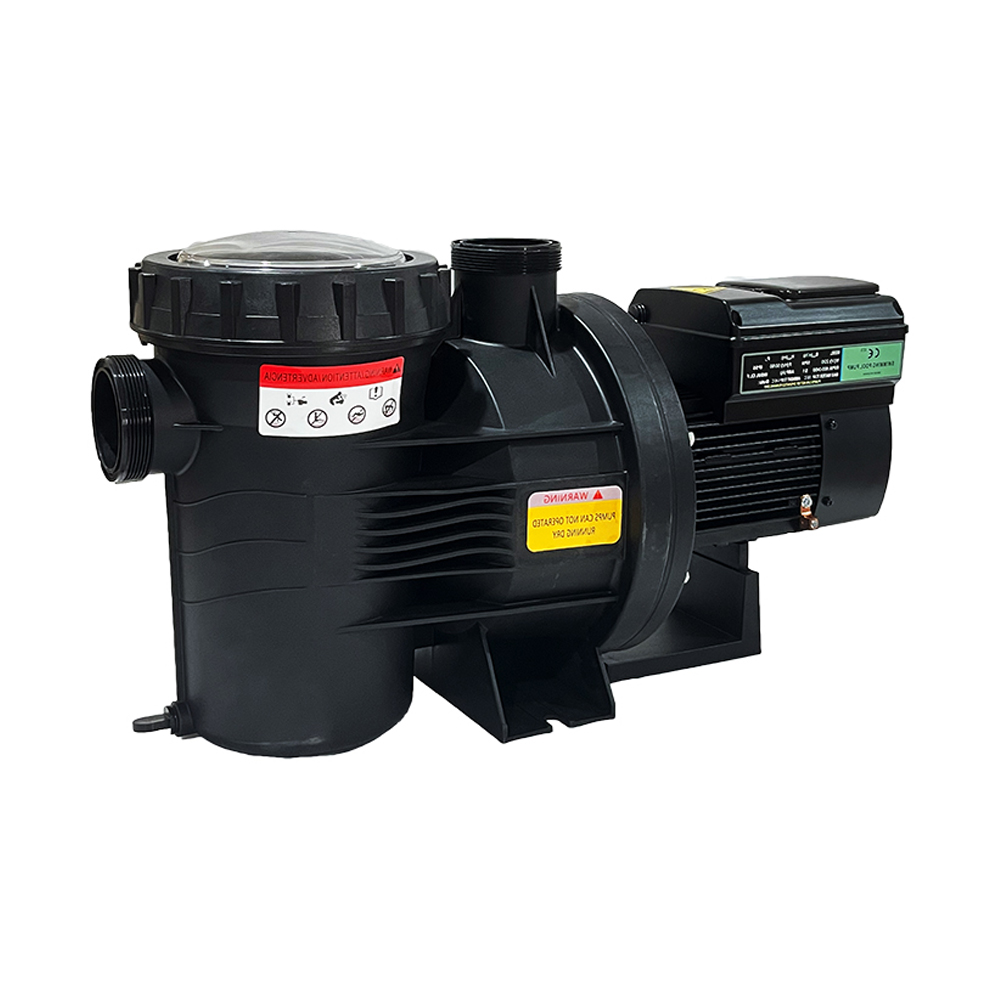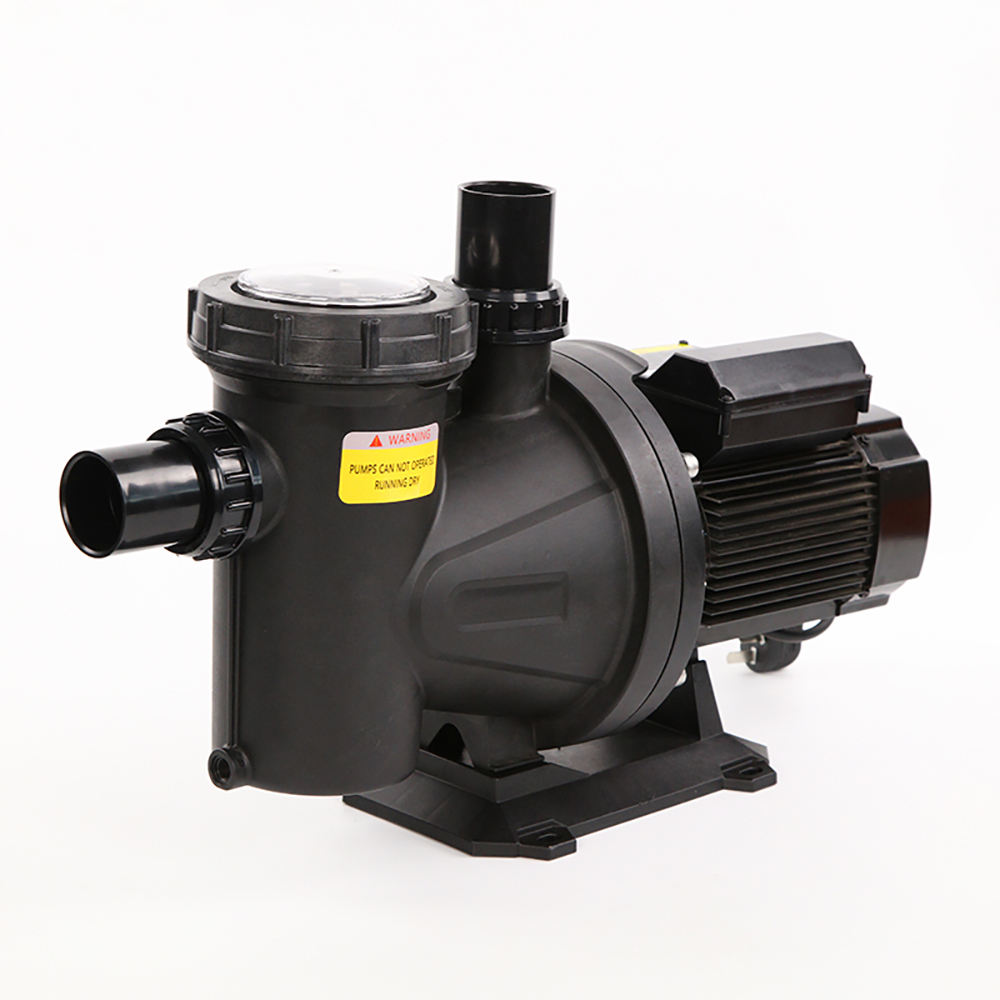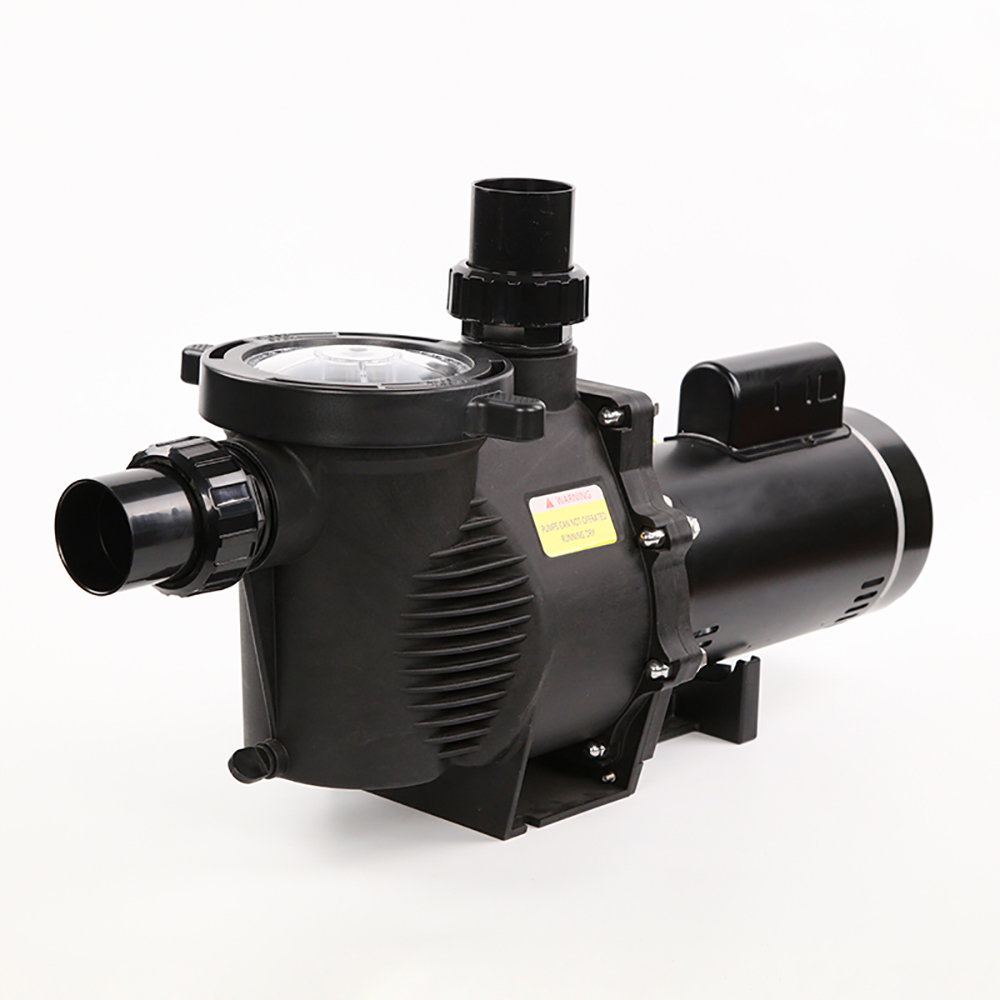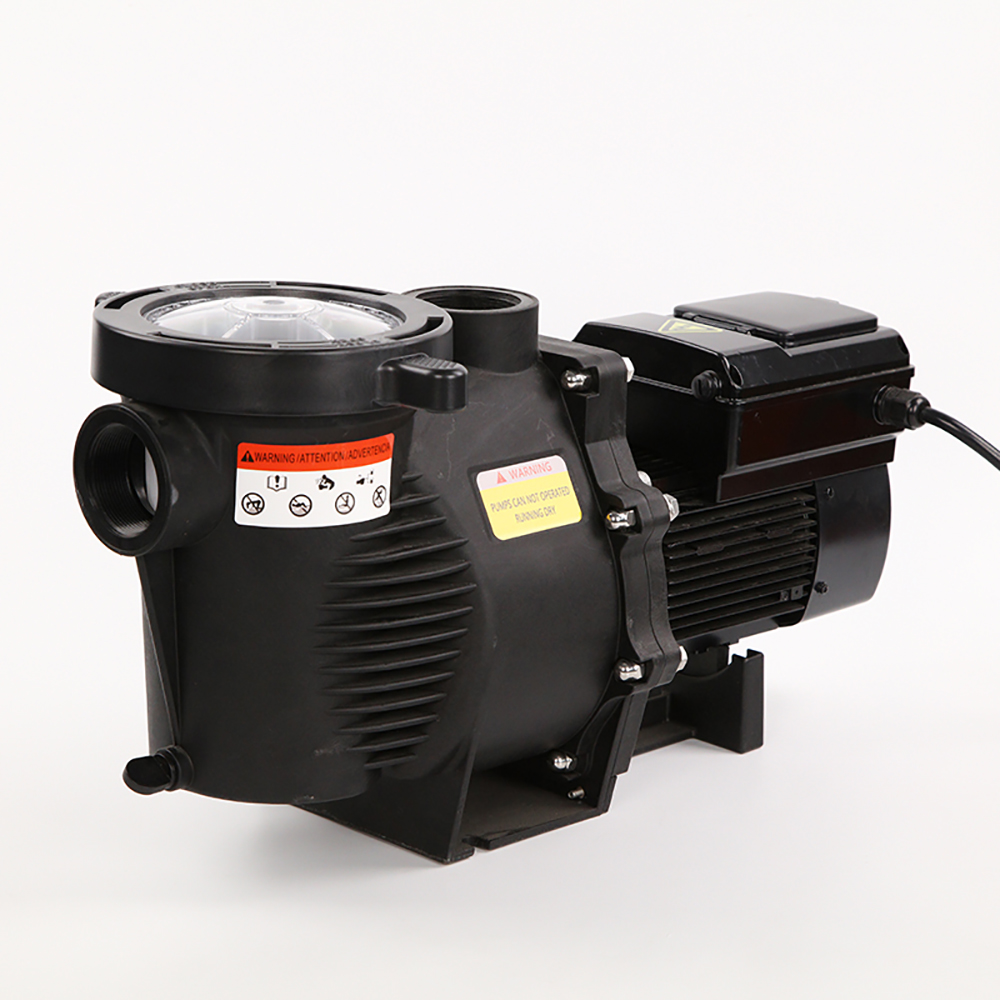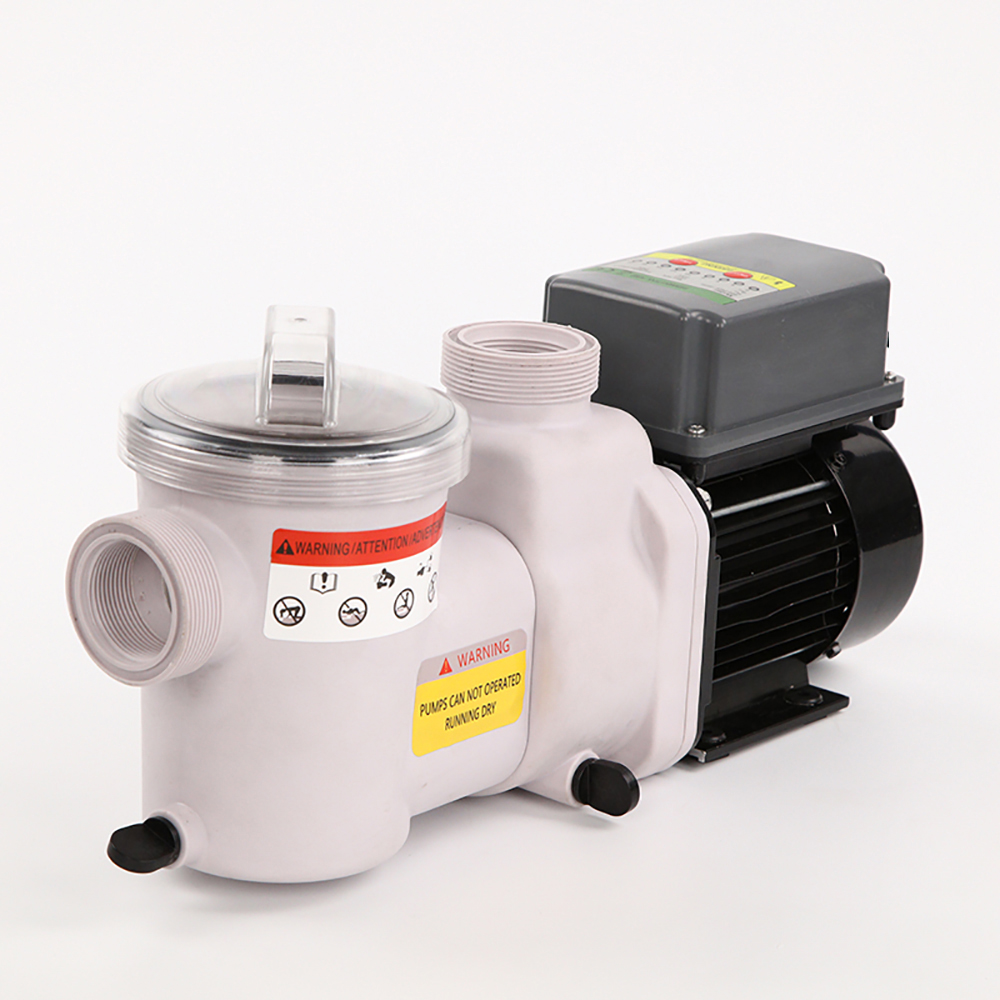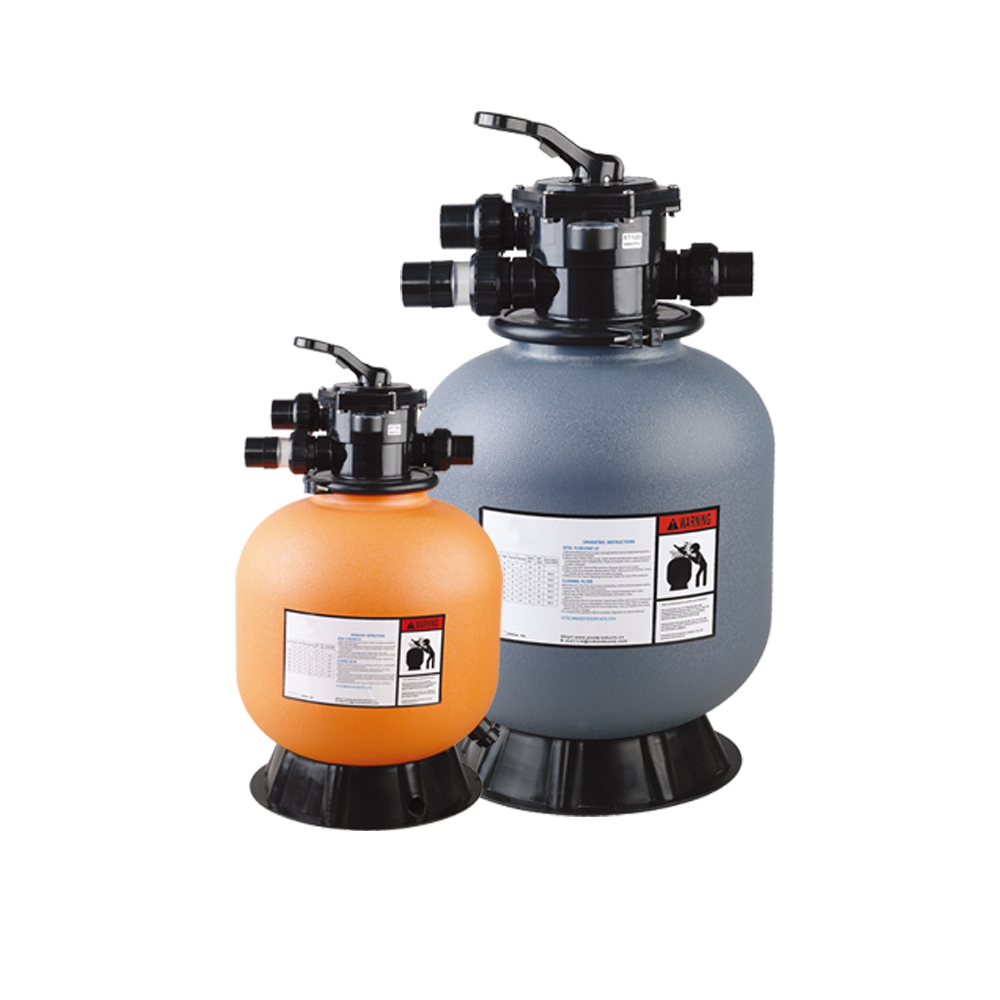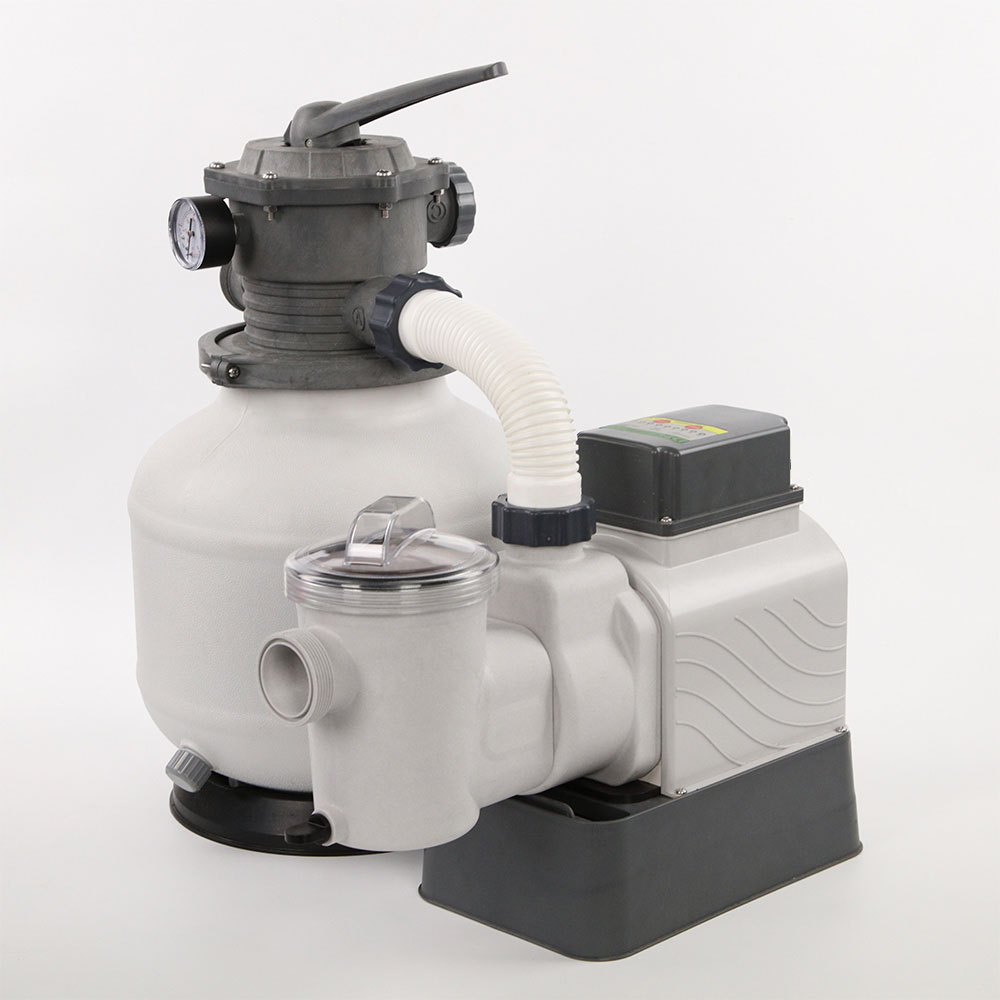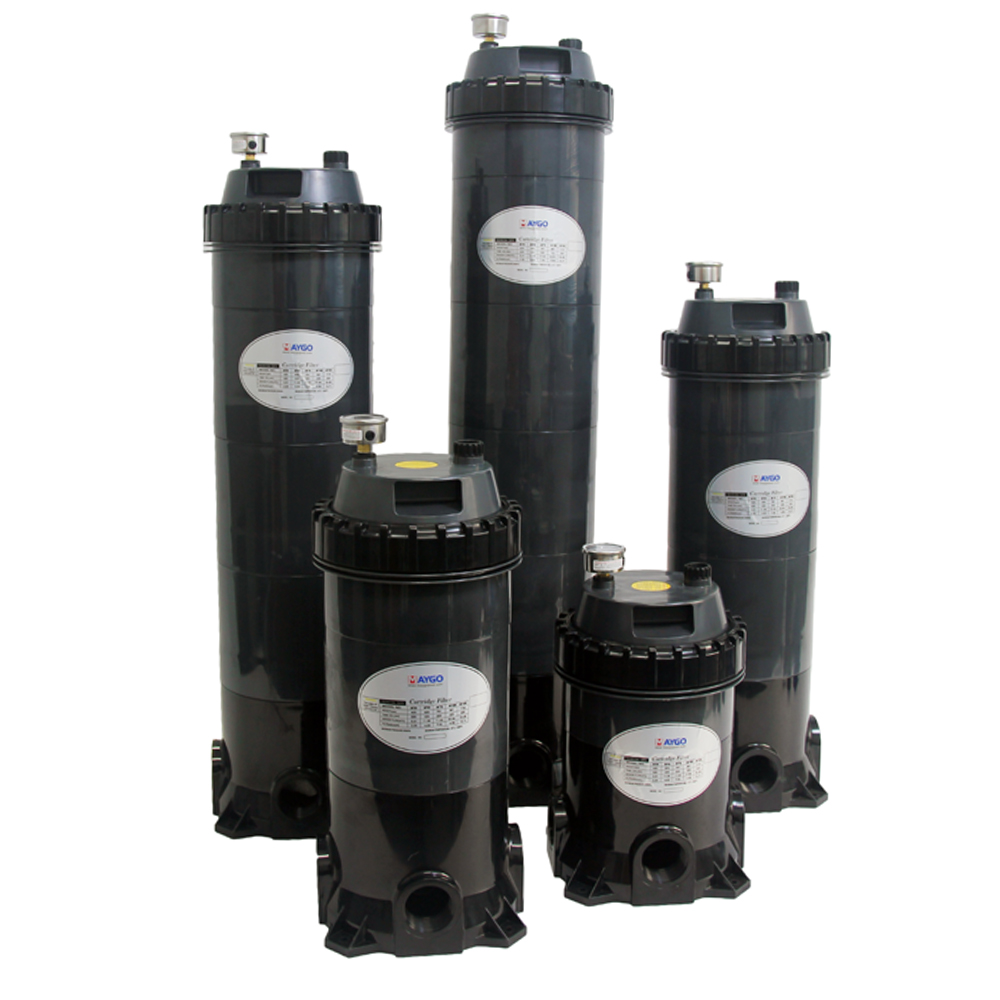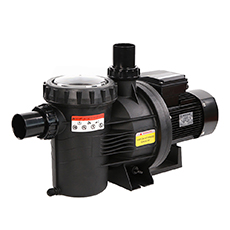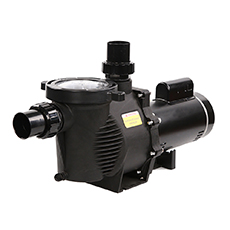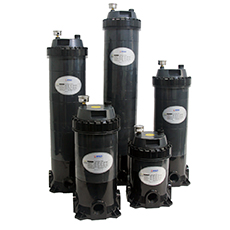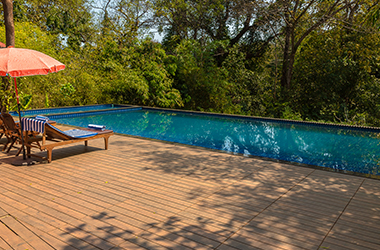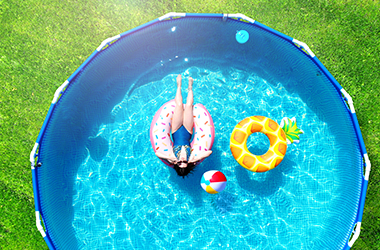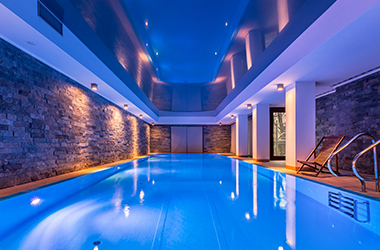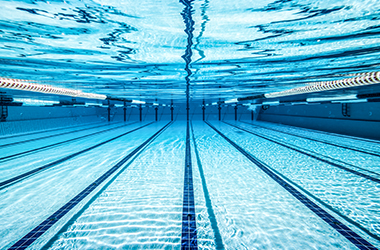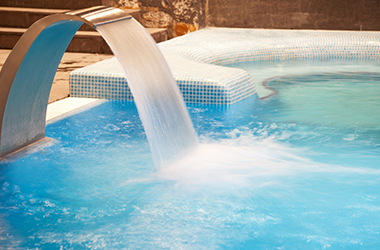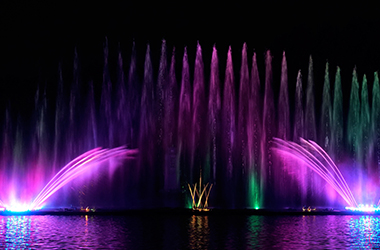Water Filtration Solutions For In Ground

Common In Ground Pool Size
19,200
30,000

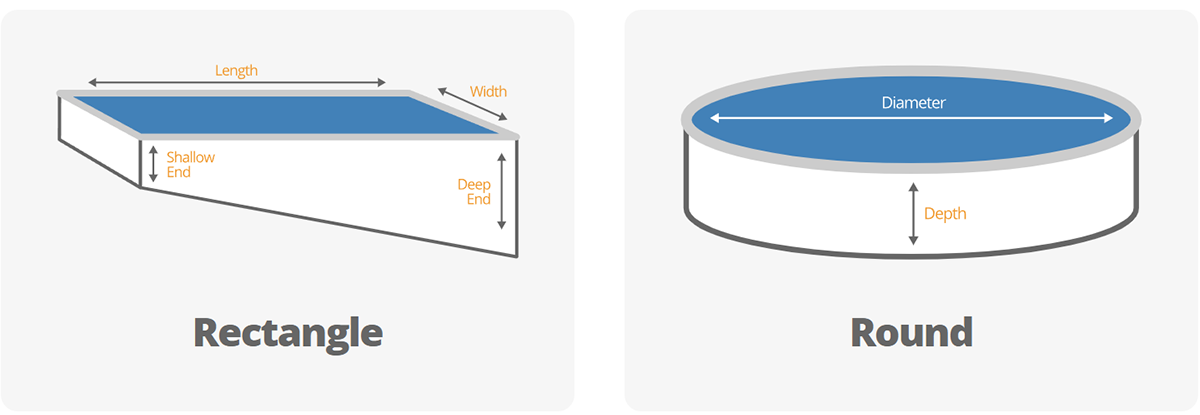
Once you have your pool’s volume, divide it by eight to determine the number of gallons per hour (GPH) that need to be pumped through the filter.
But instead of GPH, most pool pumps go by gallons per minute. To get that figure, divide the GPH by 60 to calculate how many gallons per minute (GPM) need to be pumped for full turnover.
So your formulae will be:
Total Pool Volume ÷ 8 = GPH
GPH ÷ 60 = GPM
It won’t be as accurate as using a calculator or doing the math, but you can also get an idea of your pool’s volume here:
Above Ground
48 " Wall Height
- Pool SizeGallons
15' Round
5.300
18' Round
7.600
20' Round
9.400
24' Round
13.600
27' Round
17.200
28' Round
18.500
11x25 Oval
6.500
15x25 Oval
7.800
15x30 Oval
8.900
18x33 Oval
10.600
18x38 Oval
14.000
Above Ground
52 " Wall Height
- Pool SizeGallons
15' Round
5.800
18' Round
8.300
20' Round
10.200
24' Round
15.300
27' Round
18.600
28' Round
20.000
11x25 Oval
7.000
15x25 Oval
8.400
15x30 Oval
9.600
18x33 Oval
11.500
18x38 Oval
14.000
In Ground
Average Depth
- Pool SizeGallons
12x24 Rectangular
10.800
16x32 Rectangular
19.200
16x36 Rectangular
21.600
18x36 Rectangular
24.300
20x40 Rectangular
30.000
16x32 Oval
17.200
18x36 Oval
21.700
20x40 Oval
26.800
17x33 Grecian
19.700
17x37 Grecian
22.200
20x36 Grecian
24.300
20x44 Grecian
30.300
16x30 Kidney
14.900
16x34 Kidney
16.500
20x38 Kidney
20.200
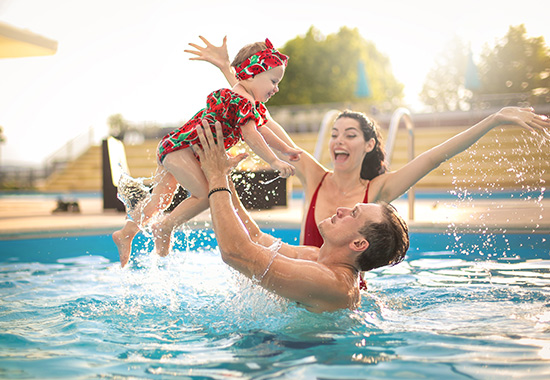
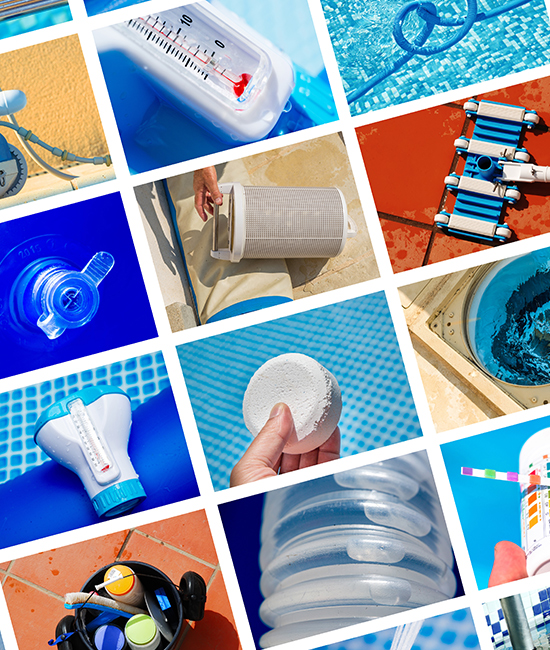
Single-Speed Pumps
The original of the three, the single-speed refers to the fact that the motor spins the impeller at only one speed according to the horsepower of the motor.
If you are replacing a single-speed pool pump, we recommend you upgrade to at least a dual-speed or better. They’re more efficient, and they turn the pool water over more quickly.
But there’s something else to be aware of. Some states, such as Arizona and California, prohibit the installation of new single-speed pool pumps.
Dual-Speed Pumps
As the name implies, these pumps have two speeds: low and high. The high speed equates to that of a single-speed pump. The lower speed uses less energy, but may not be as efficient at water turnover. This will depend on your pool’s volume.
Variable-Speed Pumps
Yes, these pumps are more expensive than single- or dual-speed pumps, and rightfully so. This where that long-term investment in your pool comes in.
Instead of an induction motor like the other types have, a variable speed pool pump uses a permanent magnet motor, the kind used in electric cars. A magnet motor creates less friction than an induction motor. Less motor friction equals higher efficiency.
Variable-speed pumps also consume less power and turn the water over more quickly. They also run at lower revolutions per minute (RPM) than single- and dual-speed pumps, so they’re quieter. You may even get a utility rebate when you buy one.

The Pump Is Leaking
The most common causes for pool pump leaks include a bad impeller housing O-ring, bad shaft seal, bad thread sealant, and shrunken threads on the discharge pipe.
In most cases, these parts can be purchased and replaced rather easily at a fraction of the cost of calling a pro. Determine which part is leaking, take the system apart, replace it, and you will be back up and running in no time.

The Pump Fails to Pull Water
When water isn’t being pulled in to the pump, it can’t reach the filter and pass through the system properly. The first thing to look for is a clog in the system.
First, check the skimmer and the pump baskets to make sure they’re not clogged. Next, check the impeller for debris impeding its movement. Open up the pump and clear away any debris.
Another potential cause can be an air leak in the suction line. Since air has less mass than water, the pump will suck in air instead of water. Check the lines for leaks and patch up any you find.

The Motor Won’t Start
The first thing to check is the breaker to make sure it hasn’t been tripped. If the breaker is on, but the pump still won’t turn on, there’s likely an electrical problem, and you may have to replace the motor.
Note: If you’re not comfortable working with electrical systems, this may be an instance where calling in a pro is the best choice.

The Motor Spontaneously Turns Off
If this happens, the motor is most likely overheated. Check the pump’s air vents to make sure nothing is obstructing air flow. If it continues to happen, you may want to install something to shade the pump, if possible.
If the problem persists, it could be an electrical issue, and you may want to call in a pro, unless you’re an electrician.

The Pump Motor is Making Noise
All pump motors will make some noise. But if your pump is making a racket that sounds different from when it’s running normally, you could have a problem.
If it’s just vibration, placing the pump on a rubber pad may do the trick. But if it’s a low, growling sound, the problem could be cavitation, which means the pump isn’t getting enough water, and is taking in air.

+86-13516725229

+86-13516725229

sales@maygopool.com

